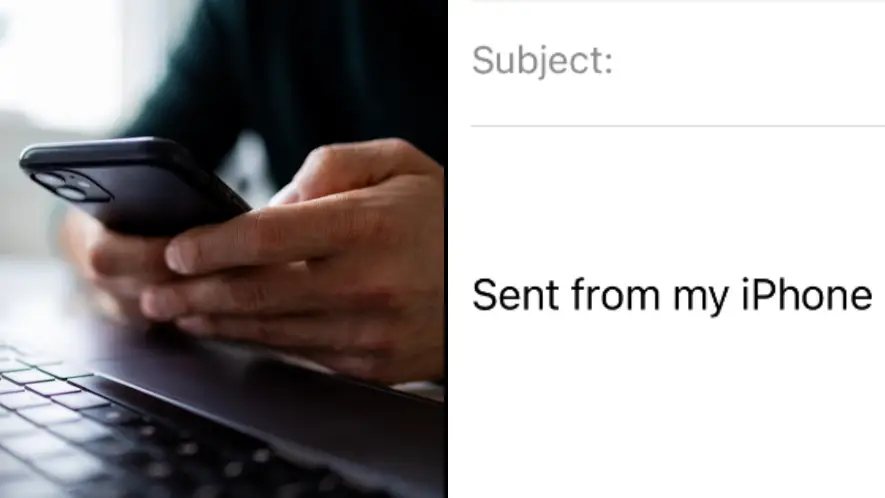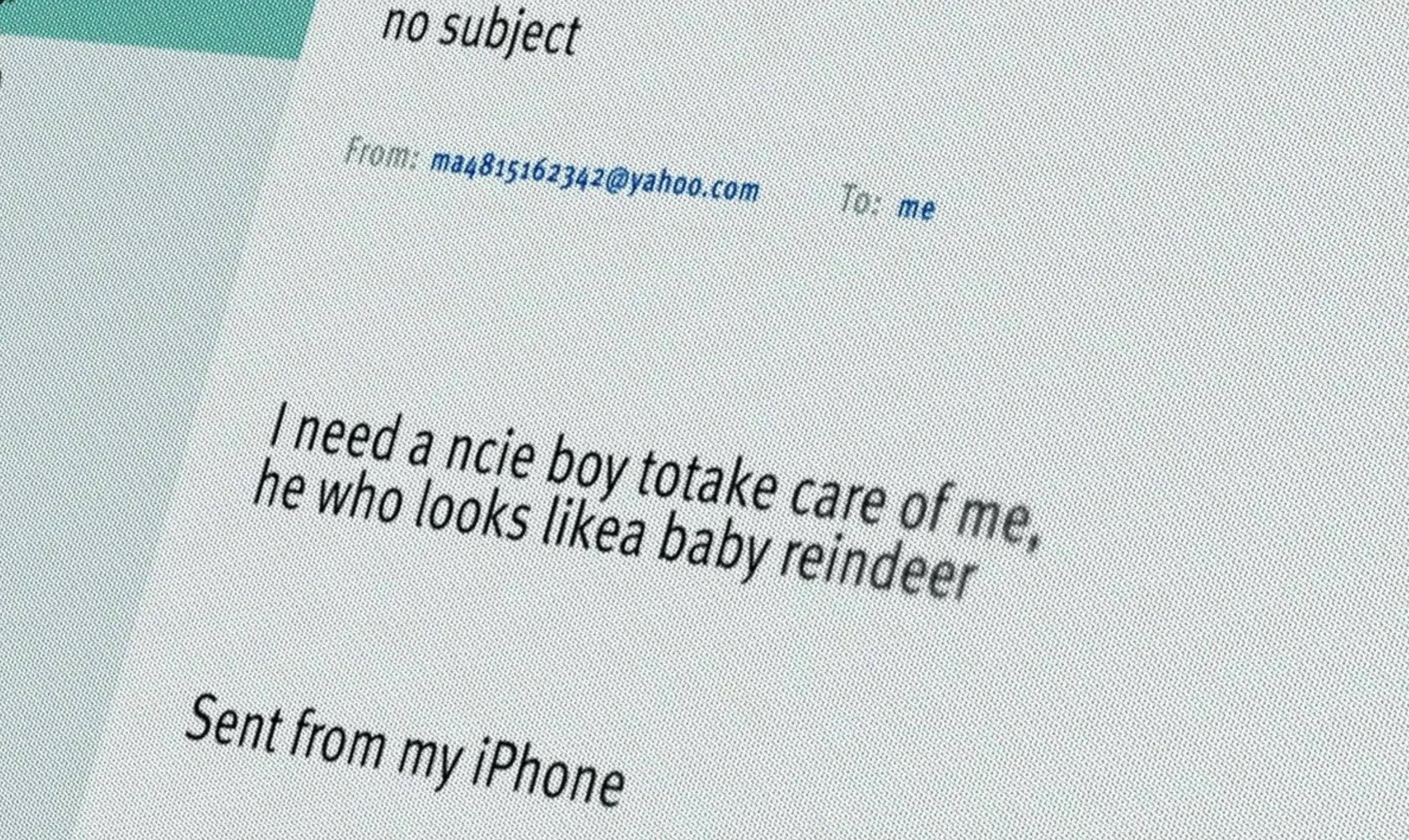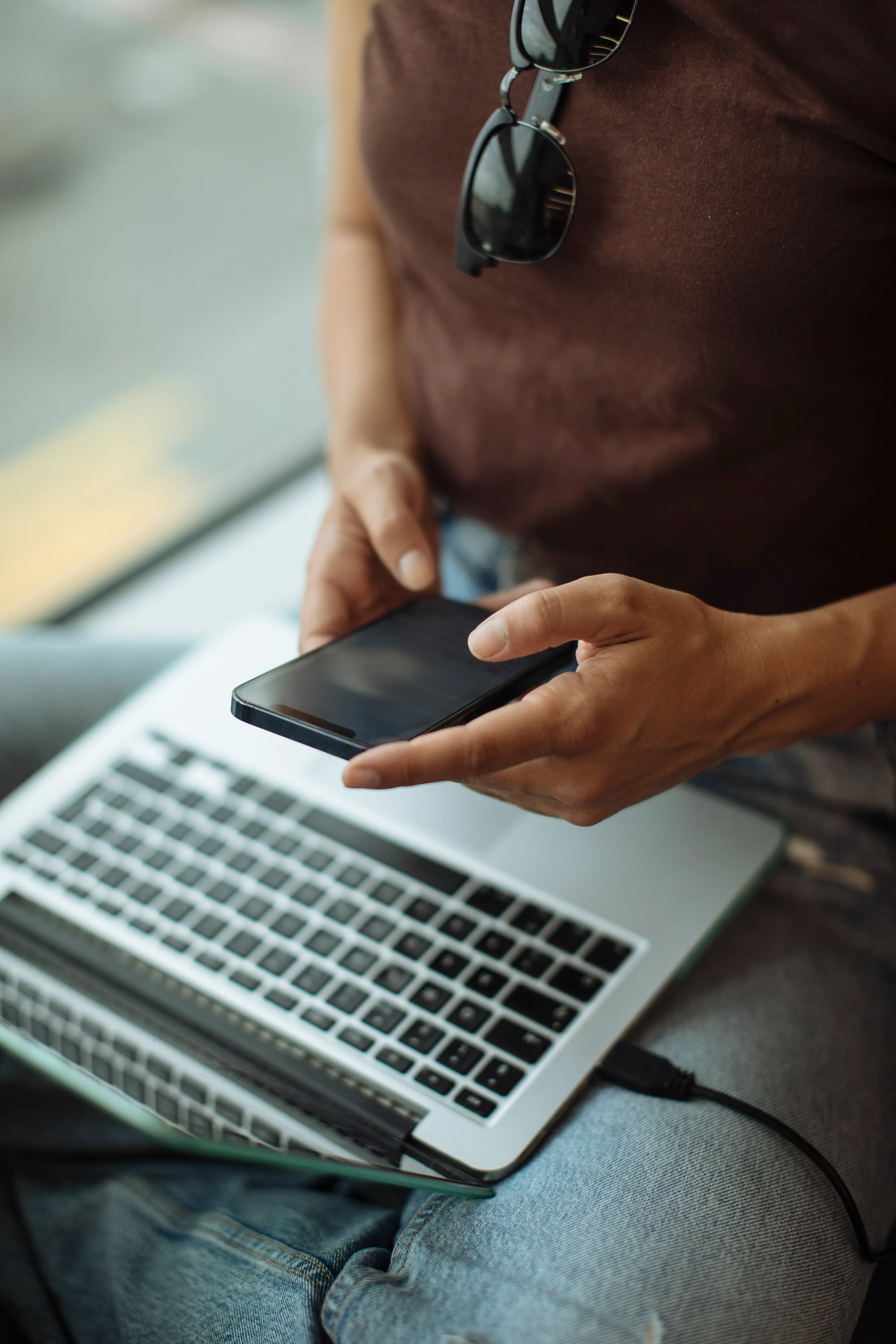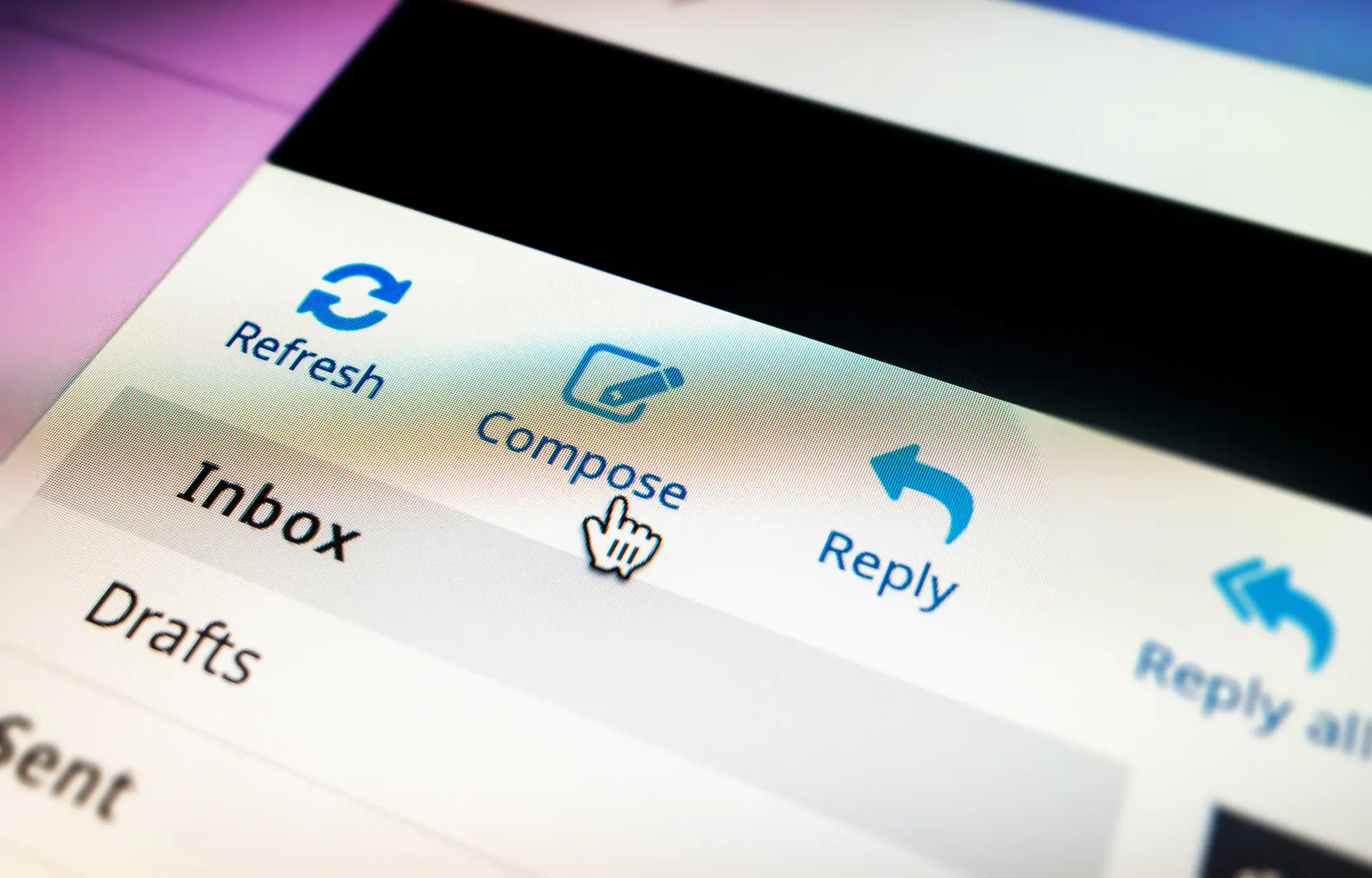
Since Baby Reindeer started airing, millions of us have been obsessively erasing the default signature which our iPhones automatically add at the end of our emails.
After watching Jessica Gunning's character, Martha, incessantly include 'Sent from my iPhone' in each and every message she sent to poor old Donny Dunn, people just can't bring themselves to use it anymore.
She doesn't even own one of Steve Jobs' creations, but she went above and beyond to pretend she did.
However, Martha got a bit lax after a while and would sometimes just sign her emails off with 'iphon', but the short disclaimer which lets the recipient know where you sent your correspondence from has now become synonymous with the stalker.
Advert
Even though you might be concerned that leaving the signature in your email could give off bad vibes, it turns out that it could also be a massive help to you.

We've all wondered what the point of describing which device your message was sent from is before, but most people don't have a clue that it offers you a degree of protection when it comes to your grammar.
A 2012 study found that signing off your email with 'Sent from my iPhone' can drastically improve your image, especially if it's used while corresponding with your boss or colleagues.
Chad Stefaniak, chair of the accounting department at Central Michigan University, and the study's co-author, Caleb Carr, decided to take a look into how the signature affects how people perceive an email.
They showed 111 students emails which were brimming with errors, some of which included 'Sent from my iPhone' at the end and others that did not.
The participants then rated the competence and 'organisational prestige' of the sender - which yielded some pretty interesting results.

The mistakes were found do have a ‘damaging effect’ in these areas, which goes to show how much a proper sentence structure matters.
But the researchers discovered that the students were much more forgiving towards those who had sent emails which appeared to come from a smartphone.
On the other hand, they weren't as lenient towards those who they thought had sent their message from a desktop computer - as they reckoned they were considerably less credible than those sending smartphone emails.
It suggests that people are aware of the issues which can come with frantically typing out a reply to our boss on your phone - such as autocorrect or simply tapping the wrong keys on your iPhone.
Due to having this knowledge and first-hand experience, we account for these slight errors - but if you are sat there typing on a desktop computer, it seems the participants think there is no excuse for grammatical mistakes.

Stefaniak said that our own experience can 'overshadow the fact someone might not be good at grammar', with the risk being that the phone 'might mask someone's true credibility'.
Therefore, including 'Sent from my iPhone' will grant you some room for error which won't make you the office idiot.
Rob Ashton, who dubs himself an expert in ‘professional email writing’, explained: "Despite the number of mistakes, the presence of ‘Sent from my iPhone’ significantly reduced that damage.
“But the implications of this and similar studies go way beyond showing that it’s a good idea to indicate that you are emailing from a mobile device.
"Because they show that the unintentional cues we send out when we write or speak have a huge impact on how our audience perceives what we’re trying to say. In communication, first and foremost, it’s the little things that count."
Maybe Martha was onto something, eh?
Topics: Technology, iPhone, Phones, Baby Reindeer, Jobs